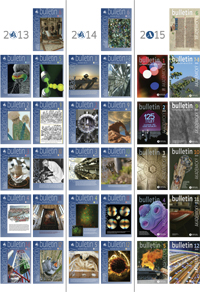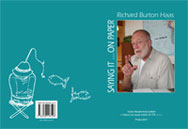

Johnny Cash, the country western singer, suffered from severe, debilitating headaches. Near the end of Cash's career, an interviewer asked if he still had headaches. "Yes," Cash said, "but not when I perform." "Do you have pain now?" "No. I'm performing."
A teenager, Jason Wilson, and his speech therapist were being interviewed on television. The therapist asked Jason, who stuttered uncontrollably, to introduce himself. It took the young man a long, agonizing minute to say, "My name is Jason Wilson." After discussing various therapeutic techniques, the therapist asked Jason to recite Hamlet's soliloquy. It seemed a cruel request. Jason said, "To be or not to be that is the question" – and 12 more lines to – "Must give us pause" without one stutter or hesitation.Jason didn't become two different people, nor did Cash. In visual terms, it's as though each one moved, unnoticeably, a little to the side, the performing Cash to the side of the suffering Cash, and the reciting Jason to the side of the stuttering Jason. It's what writers know as "a second self," and it's at the heart of writing.
A "second self" is often referred to as a persona created by the author; sometimes it is called an implied author, and occasionally the Latin origin is used, and it becomes a mask. As Oscar Wilde said: "Man is least himself when he talks in his own person. Give him a mask, and he will tell you the truth." So it's understandable that the narrator in Dostoevsky's Notes from Underground should not be considered identical with Dostoevsky himself. The narrator is Dostoevsky's mask, his persona, and has its own way of speaking.
But it is more than a way of speaking. Though the speech of the author and his persona often overlap, a persona possesses his own attitudes and attributes, as well as his own vocabulary and manner of speech – a persona has his own ideolect, his own reservoir of language for each occasion he is in, and for each person he speaks to. It's not an unusual concept, for each of us possesses our own ideolect, our own way of speaking, and I believe we all possess ideolects – we speak in different ways in different situations, just as personae and narrators and characters do in stories. Garrison Keillor joked about it. In one of his stories, a cat is killed: "Some people felt that [it] was inappropriate, but of course I could blame it on the character."
A novelist told me that once a character took shape in his mind, he described what his imagination saw the character doing, and he wrote down what his inner ear heard the character saying. The second self is not always so absorbing and dominant, but it's real to writers. Louise Erdrich said writing was a way of speaking without embarrassment; "because, you see, I was brought up to be an incredibly nice person, but not everything I wanted to say was nice." Her second self liberated her.
The journalist, Don Marquis, didn't think people wanted to hear him philosophize about human foibles. So he invented Archy, a cockroach, who typed notes to him. Archy became Marquis's "mouthpiece," and commented on people, but often about Mehitabel, an alley cat with questionable morals. Both Archy and Mehitabal were definite speakers, and said things Marquis could not say in his articles, and might not even think of. They liberated Marquis. His personae became famous, and like Louise Erdrich's persona, not everything they said was nice.
Joe DiMaggio, the famous baseball player, talked about his brain taking over his body, and his body performing a brilliant play, and the crowd yelling its approval; then he would wonder who made that play. Writers would understand Joe's wonderment, for many of them have admitted that they question who wrote a particular page. It was another voice, a persona, who took creative control and wrote it. And it's not limited to creative writing, and it's not hocus-pocus, and it's not a journey into the occult. The scientific writer is not the scientist when he is writing. The doctor writing about doctoring is not the doctor practicing medicine. It's a part of many aspects of our lives, but it's certainly pulsates at the heart of writing. As Shelby Foote said: "A writer's like anybody else except when he's writing."
RICHARD HAAS,
Kabinet studia jazyků ÚJČ AV ČR, v. v. i.


 English
English

















